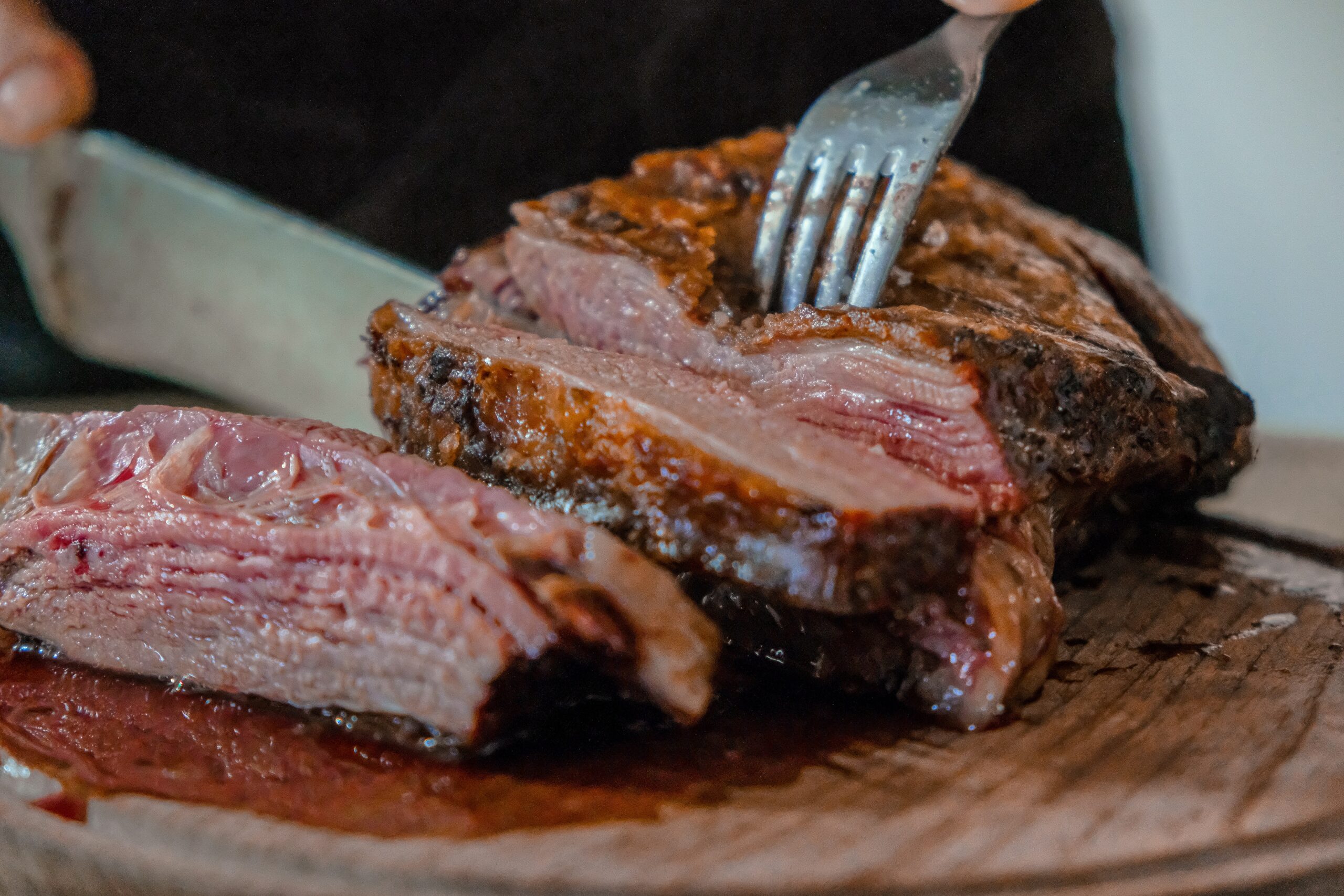One of the most common causes for concern when people talk about the Paleo diet is how frequently meat is being eaten; red meat in particular.
I’ve heard those in the “pro meat” camp explain away studies linking red meat and cancer by saying these studies are only looking at conventionally-raised meat and not 100% grass-fed beef, but there are some legitimate concerns surrounding red meat consumption that have nothing to do with how the meat was raised. Fortunately, there are ways we can counteract these negative effects on our bodies, and enjoy red meat for its deliciousness, as well as the irreplaceable nutrients it provides us. Let’s break it down.
First, there have been many, many, headlines in the news announcing yet another study linking red meat and cancer. But we can’t take these at face-value. Most of these studies are observational studies, which means there are uncontrolled variables and food eaten is tracked by participants’ recollection and filling out questionnaires.
There’s also a problem of “healthy user bias”, which means that because of all the negative press surrounding red meat for years, people who eat red meat are also more likely to eat unhealthy things like sugar, fried-foods, processed foods, and probably a bun and fries with their burger. They’re also more likely to engage in less healthy activities like smoking, being sedentary, etc. So, at best, we are looking at correlation, not causation, between red meat and cancer, which really doesn’t tell us anything.
So, what are the potentially legitimate concerns?
First, red meat contains heme iron. It’s what makes the meat red, and although present in white meat, it’s in much, much lower quantities. Heme iron has been linked to cancer in reputable studies, and it’s not something to ignore. It’s metabolized by our digestive tract into cytotoxic compounds, which can cause damage to the gut barrier, create cell proliferation, and increase fecal water toxicity. Yikes!
We can counteract these cancer-causing effects by eating foods containing chlorophyll, present in green plants. Chlorophyll’s molecular structure is very similar to that of heme iron, and will block the metabolism of heme iron, mitigating the risk for cancer. So, eating your red meat with greens just became essential.
The threat most publicized is the mutagens created from cooking red meat using harsh methods, namely grilling or frying. When red meat comes into contact with high heat or flames, compounds called HAs (amino acids reacting with creatines in muscle meat) or PAHs, which are created when drippings hit open flames, are created. HAs and PAHs are known mutagens and can change DNA, increasing our risk of cancer.
While we don’t know how much risk is associated with these mutagens, we know they aren’t risk-free, so how can we mitigate these risks? Well, not grilling as frequently is the obvious one, using methods like slow-cooking or baking, but what can we do to lower these risks when we’re barbecuing?
Add in some veggies! But not just any vegetables; cruciferous vegetables are the missing link. Cruciferous veggies contain insoles, a type of phytochemical that can suppress tumors induced by PAHs and HAs. Not only that, but they can change the way the body metabolizes these mutagens, rendering them less damaging. Want to play it really safe? Marinate your meat in a lemon juice/garlic/olive oil marinade or red wine. This can reduce the HA formation in your meat by up to 90%!
So, what have we learned?
Yes, there are components of red meat that can potentially cause cancer, but by using more gentle cooking methods more often and eating vegetables with our red meat, we can largely offset a lot of the risk. Our food works synergistically. Meat contains many nutrients plants can’t provide, and vice versa. One without the other would mean we were missing out on essential nutrients, and, as we examined above, may even cause us preventable harm. So, eat a big green salad or some tasty cabbage slaw with your (preferably bun-less) burger, and enjoy your delicious, balanced, nutrient-dense meal!
I highly recommend checking out some of these references for more in-depth information:
Paleo Principles, Sarah Ballantyne
Why Eating Meat is Good for You
Photo by José Ignacio Pompé on Unsplash


